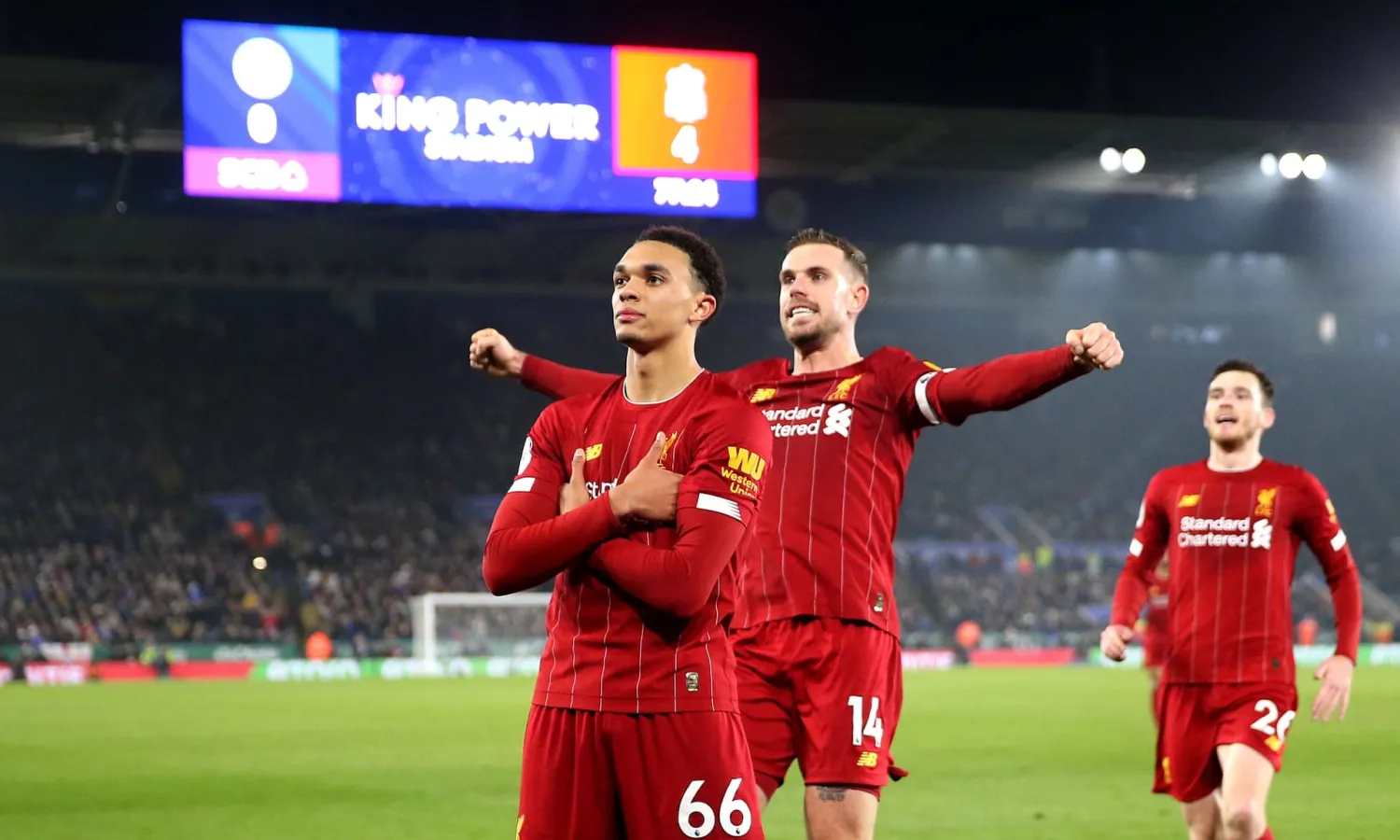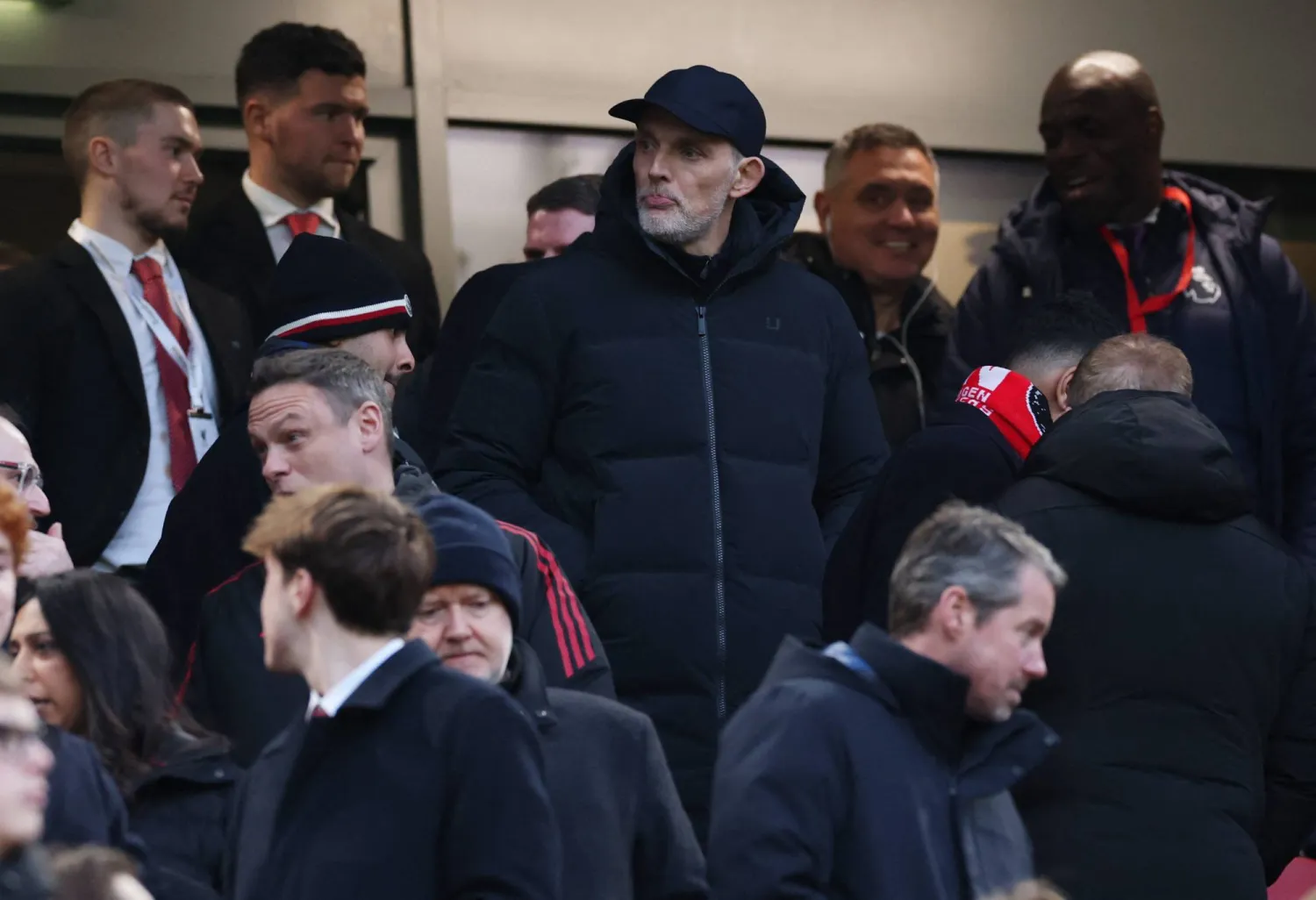It is a measure of what an astonishing season this has been from Liverpool that if Manchester City had won every match they played since 8 October, when they lost 2-0 at home to Wolves in their eighth game of the season, they would still have been second right now.
Jürgen Klopp’s side have maintained their extraordinary form of last season when they finished a point behind City with the third-highest total in history, perhaps even improved; City have not. The danger is to become numb to such relentlessness, to think it is normal. It is not, not even as football’s self‑destructive economics stretch the gap from the top of the table to the bottom.
The days since the restart have offered a reminder of how good City are with the ball, even if their defensive fallibility was clear at Chelsea on Thursday. Liverpool have not streaked away from a league of mediocrities. City remain a formidable side capable of idiosyncratically brilliant football. The temptation would be to suggest Klopp’s football has superseded that of Pep Guardiola, that the great tactical wheel has turned again, but it’s nowhere near so straightforward.
Trust, patience and hard work: how Jürgen Klopp transformed Liverpool
Read more
Guardiola’s Barcelona presented the world with a level of possession football that had never been seen (in part taking advantage of a changing environment with better pitches and equipment, a crackdown on intimidatory fouling and a new interpretation of the offside law that increased the effective playing area).
That set the rest of football a problem. You could try to copy the Barcelona approach, although without the traditions of La Masia, or you could try to challenge it. In essence, then, the question was simple: they have lots of the ball; what is the best way to get it back? The answer to that isn’t complex, although the theory is extremely difficult to put into practice: you press.
Even by 2010, it had become apparent there were two ways to take on Barça. Opponents either sat deep, went into the bunker and tried to restrict the number and quality of chances Barça had (as Internazionale and Chelsea did in the 2010 and 2012 Champions League semi-finals); or they pressed high and tried to disrupt Barça’s possession at source.
It is a high-risk approach but it is also the one Klopp saw as being at least to an extent controllable. As he has said, sitting deep against a Guardiola side is essentially hoping to win a lottery in that it accepts them having a (significantly) greater number of chances and relies on them failing to take advantage.
Tactical evolution can be understood as a series of interlocking dialectics: proactivity against reactivity, art against pragmatism, individuality against the team. The most relevant here is technique against physique. Guardiola’s Barcelona were so technically good that it did not matter their five most advanced players had an average height of 5ft 6½in; bigger teams couldn’t get close enough to take advantage. The challenge was to devise a way of pressing that was so good that bigger and more aggressive players could bring their physical advantages to the battle. That has been the underlying logic of tactical development over the past decade.
In the broadest terms, football – and Liverpool – have been here before. As the 60s yielded to the 70s, total football supplanted catenaccio, hard pressing and attacking displacing man-marking and caution. But then total football mutated. The German model, as practised by the national side, Bayern Munich and Borussia Mönchengladbach, was still about possession and the interchange of positions but it lost the pressing element that had made the Dutch school so radical. It was then overwhelmed in the late 70s by the pragmatic pressing of Liverpool and Nottingham Forest, technically accomplished sides who overpowered opponents but were also extremely defensively capable.
In that regard a comment Klopp made after a diligent Bayern had held them to a 0-0 draw at Anfield in February last season seems significant. “Something,” he said, “changed in the world of football – everyone adapted to it and we have to make sure we adapt.” He was talking about the largely forgotten art of defending. City have scored seven more league goals than Liverpool this season but, vitally, Liverpool have conceded 12 fewer.
But of course it is nothing like as simple as a recapitulation of the pattern of 40 years ago, or of Klopp seeking a solution to the challenge set by Guardiola and finding it this season. For one thing, Guardiola has evolved after leaving the microclimate of the Camp Nou. He changed in Germany and his football at City, particularly in his second and third seasons in the job, showed further shifts away from the Barcelona model to something (relatively) more direct.
Last season there was a hair’s breadth between them (or rather 11.7mm). This season City have faltered, largely it seems because of failures of defensive recruitment. The verdict of the court of arbitration for sport has the potential to inflict serious damage on the club but if City’s appeal is upheld – and quite possibly even if it is not – there is no reason to assume Liverpool will necessarily win a race against City next season, particularly given the front three are all 28 and some sort of transition will have to begin at some point. There cannot be an assumption that Klopp has found a tactical formula that will dominate Guardiola in perpetuity.
Klopp’s pressing, well-organized and relentless as it is, clearly causes City problems, which is why he has by far the best head-to-head record against Guardiola of any manager who has faced him a meaningful number of times, but the idea that his style has surpassed Guardiola’s is misleading. Rather, Liverpool have come to play a form of football that has repeatedly challenged City’s and this season outstripped them, while influencing an evolution Guardiola was already undergoing.
Guardiola a decade ago established a hegemonic style of possess and press. What Klopp has done is to emphasize the pressing aspect, to shift the balance from technique back towards physique.
(The Guardian)









